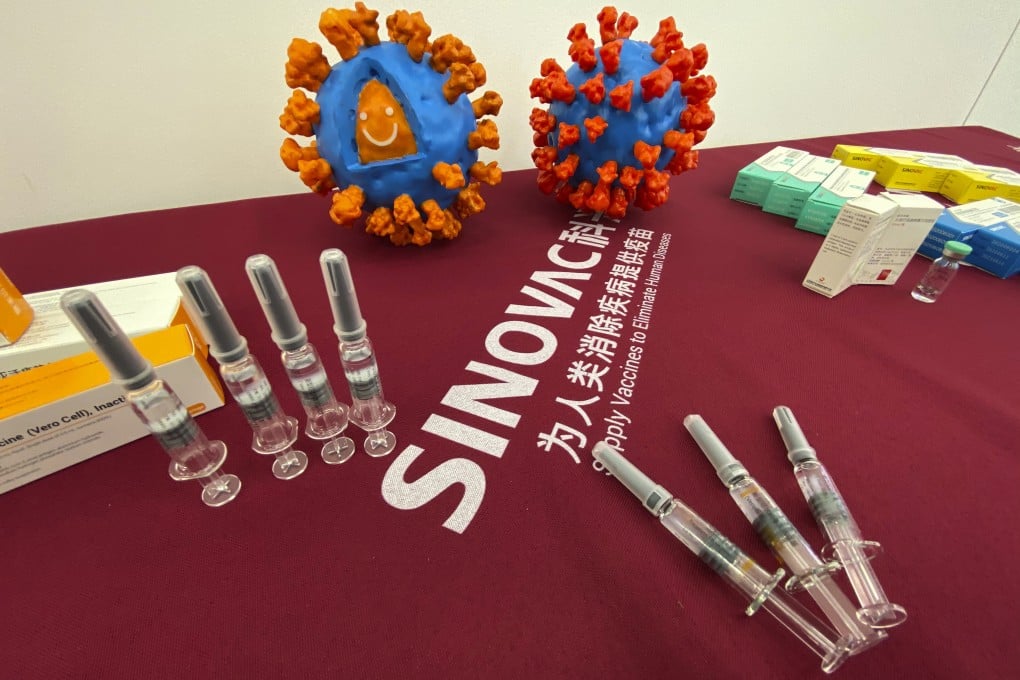China’s Sinovac ready to produce targeted Omicron vaccine ‘if necessary’
- Vaccines supplier says mass production ‘not an issue’ if scientists determine changes needed to deal with world’s latest variant
- Other manufacturers confirm they too are studying what changes if any they may need to make to boost effectiveness of their shots against Omicron

“The technology and production is the same [with the ancestral virus] and a vaccine for research can be prepared very quickly after isolation of the strain. Production is not an issue,” the company said.
“But relevant studies need to be completed and new vaccines approved for use in accordance with regulatory requirements. It is too early to say whether a separate vaccine will need to be developed and produced for this variant.”
Sinovac said it was closely monitoring studies and collecting samples related to the Omicron variant through its global partner network to determine whether a new vaccine was required.
“If necessary, we will be able to rapidly advance the development and launch massive production of new vaccines to meet demand,” it said.
Sinovac previously developed inactivated vaccines against the Gamma and Delta variants, but did not alter its original vaccine design which it found to be effective against the earlier strains.
The World Health Organization moved quickly to classify the Omicron variant as “of concern”, meaning it is more contagious, more virulent or likely to evade public health measures, vaccines and therapeutics.
